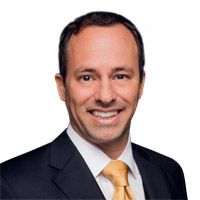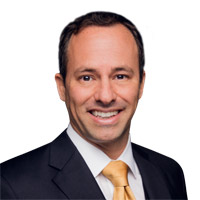Preparing for the Next Recession: Six Considerations for Retirees
Being more disciplined and risk averse in the good times can make it easier to weather the bad times when they inevitably arrive.


Profit and prosper with the best of Kiplinger's advice on investing, taxes, retirement, personal finance and much more. Delivered daily. Enter your email in the box and click Sign Me Up.
You are now subscribed
Your newsletter sign-up was successful
Want to add more newsletters?

Delivered daily
Kiplinger Today
Profit and prosper with the best of Kiplinger's advice on investing, taxes, retirement, personal finance and much more delivered daily. Smart money moves start here.

Sent five days a week
Kiplinger A Step Ahead
Get practical help to make better financial decisions in your everyday life, from spending to savings on top deals.

Delivered daily
Kiplinger Closing Bell
Get today's biggest financial and investing headlines delivered to your inbox every day the U.S. stock market is open.

Sent twice a week
Kiplinger Adviser Intel
Financial pros across the country share best practices and fresh tactics to preserve and grow your wealth.

Delivered weekly
Kiplinger Tax Tips
Trim your federal and state tax bills with practical tax-planning and tax-cutting strategies.

Sent twice a week
Kiplinger Retirement Tips
Your twice-a-week guide to planning and enjoying a financially secure and richly rewarding retirement

Sent bimonthly.
Kiplinger Adviser Angle
Insights for advisers, wealth managers and other financial professionals.

Sent twice a week
Kiplinger Investing Weekly
Your twice-a-week roundup of promising stocks, funds, companies and industries you should consider, ones you should avoid, and why.

Sent weekly for six weeks
Kiplinger Invest for Retirement
Your step-by-step six-part series on how to invest for retirement, from devising a successful strategy to exactly which investments to choose.
Just like spring and summer always lead to fall and winter, we know winter is coming and another recession is on the horizon, we just don’t know when. If you have a leak in your roof, when's the best time to fix that leak? Before it rains, because once the rain comes, it's too late.
We've seen this movie before — sky-high real estate prices coupled with sky-high stock market prices — and we have our own ideas on how it’s going to end. Some retirees may be concerned about going through another 2008-type of crash again at this age now that time is no longer on their side. I'm 48 years old, so I have 20 more years before I even need my money. However, my retired clients are living off their money today.
I believe retirees should consider being more disciplined and risk averse in the good times so you can take advantage of the bad times and not lose more than you’re comfortable with when the bad times do come.
From just $107.88 $24.99 for Kiplinger Personal Finance
Become a smarter, better informed investor. Subscribe from just $107.88 $24.99, plus get up to 4 Special Issues

Sign up for Kiplinger’s Free Newsletters
Profit and prosper with the best of expert advice on investing, taxes, retirement, personal finance and more - straight to your e-mail.
Profit and prosper with the best of expert advice - straight to your e-mail.
For retirees who are no longer working, their tolerance for risk at this age and stage of life has gone down. They’ve typically switched from the growth stage to the distribution stage, where they want to help preserve their wealth and generate income from their retirement assets.
When's the right time to make sure your financial house is protected? Before the winter storm.
Our brain is designed to think that if you keep doing the same thing that worked during the good times, those things will work forever. However, last year was a reminder that's just not the case.
The financial adviser and investment strategy that got you to retirement might not be the right person and strategy to get you through retirement, as your goals might have changed now that you’re in retirement.
Since 2009, the S&P 500 has been going up almost every year for the past 14 years! Do you think the next 10 years in the economy will look like the last 10 years? We don’t.
2022 was a rough year for both stocks and bonds:
- FAANG stocks: -44%
- Nasdaq: -33%
- S&P 500: -19%
- Corporate bonds: -18%
2022 reminds us that markets don’t go up forever.
The definition of insanity is doing the same thing over and over again and expecting a different result. You want to have the right retirement plan for you, right now. Let’s look at some important retirement planning and tax planning considerations and strategies for a retiree.
1) How much risk do you want to take in your retirement plan, and how much do you have right now?
It’s of utmost importance to figure out how much risk you’re comfortable with at this age and stage of life. It’s also important that as a retiree you’re not taking more risk than you should. We at Kirsner Wealth Management use Riskalyze Software Program, which helps calculate exactly how much risk you want to take and how much risk you have in your portfolio now. It will also show you exactly how much you could lose if you’re faced with another crisis like in 2008.
If you actually lost more money in 2022 than you’re comfortable with, you might have more risk than you should. Most of our retired clients are no longer comfortable with too much risk at this age and stage in life.
2) How much are you paying in fees in your retirement plan?
You will want to consider tuning up your retirement plan on a regular basis with the amount of risk you’re comfortable with and fees that are as low as possible. Fees can considerably slow down the performance of your retirement plan and will potentially add up to a lot of money spent over time, so it’s important to evaluate how much in fees, published and hidden, you’re paying.
Two types of investments that might have higher fees include mutual funds and variable annuities. If you own either of these, you might want to get a second opinion to be certain your fees aren’t surprisingly high.
Also, make sure you’re not paying your financial adviser too much in fees either.
3) Help minimize your taxes!
As IRA professional Ed Slott says, your IRAs are ticking tax time bombs. Taxes might be the biggest expense you have for the rest of your life, especially if you’ve accumulated a large IRA. This is especially true because the current tax cuts expire in 2026, so we have a limited time to take advantage of today’s lower tax rates. The fact is with your IRA it’s either pay taxes now, or pay taxes later. Wouldn’t it be better to pay lower taxes overall, if possible?
If you were a farmer, would you rather pay taxes on your penny seeds, or your million-dollar wheat harvest? Clearly, most people would rather pay taxes on the pennies, not the dollars, and that’s why a Roth IRA could be a helpful strategy. This is especially important with the elimination of the stretch IRA, as I discussed recently when I was interviewed on the Today show.
If you have an IRA, these are four reasons you might want to consider doing partial Roth IRA conversions each year in conjunction with your accountant:
- Tax rates are going up in 2026, so you want to take advantage of today’s low tax rates.
- If you’re a married couple, you’re now in a joint tax bracket. When one of you passes away, the surviving spouse will be in a single tax bracket and could pay higher taxes. If the surviving spouse has a Roth IRA instead, the spouse can use that Roth IRA money to live on without having to worry about taxes, as those taxes were paid when you were joint taxpayers.
- The stretch IRA is gone! Your children will have to completely empty your IRA you leave them within 10 years of your death. An additional reason to consider converting to a Roth, as I wrote in the article Financial Advice for Millionaires: 5 Strategies for 2022, your children might have to pay higher income taxes than you, as they probably will still be working when they inherit your IRA money. Additionally, if your children live in a state that has state income taxes, they will have to pay those extra state income taxes as well! The Roth IRAs will help alleviate these issues if they arise.
- To help preserve your assets you leave your children, you might want to consider using a dynasty trust. For tax purposes, you may want to consider leaving Roth IRAs to those dynasty trusts rather than regular IRAs. This is true whether you use a trust or not — see the strategy below about dynasty trusts for reasons you might prefer to use a dynasty-trust-based estate plan.
We use a software program called Holistiplan, which will help you determine the optimal amount of partial Roth conversions you can consider doing each year. We’ll work in conjunction with your accountant to implement this plan.
4) Cut your expenses in retirement.
Here are some ways you can cut your expenses in retirement:
- Downsize your home. Perhaps it’s time to simplify your life?
- Do you need a second home? With websites such as Airbnb, you can rent a home anywhere in the world. Again, simplify.
- Do you need a second car? With Uber, you might not.
- Cancel your home phone and only use a cell phone.
- Cut your home television cable costs by looking at Internet-based alternatives.
Typically, my clients are “the millionaires next door.” You’d never know they have substantial wealth. They’ve lived below their means their entire life, which they learned from parents who went through the Great Depression, and having done that, their savings compounded over decades, allowing them to accumulate the millions they have.
5) Make sure you’re protected during retirement at the right price.
Review your long-term care, umbrella liability insurance and life insurance policies to make sure you have the right protection at the right price.
In my retirement planning books, I ask that clients consider having an inexpensive umbrella liability insurance policy to help protect themselves in case of a lawsuit. You can add an umbrella liability insurance policy onto your homeowner’s insurance or on your auto insurance policy.
If you own a life insurance policy that’s more than 10 years old and qualify health-wise, you may be able to upgrade it to a newer life insurance policy at a lower cost. People are living longer, and as a result, many modern insurance policies could be lower in cost for you.
6) Consider modernizing your estate plan with an estate planning attorney.
Most of my clients have children and grandchildren whom they love dearly. We have relationships with great estate planning attorneys who can set up a dynasty revocable trust designed to help protect your assets that you leave your children and grandchildren from potential divorces, lawsuits and creditor claims, and help ensure your assets stay in your family bloodline.
You also want to consider modernizing your health care surrogate for emergency medical decisions; durable power of attorney to take care of your finances in case you’re disabled; and a modern living will, which is your “pull the plug” wishes.
My father, who started our business in 1972, often said when it comes to estate planning, you either buy cheap and cry forever, or buy expensive and cry once. That’s true for estate planning and many things in life.
These strategies could help set you on your path to retirement. The bottom line is to help create the greatest protection possible against loss due to economic downturns. Be prepared for winter in the summer — the time to repair your roof is before the next storm.
To learn more about retirement planning and estate planning to help keep your money in your family bloodline with the attorneys we work with, come to our dinner workshops at Ruth’s Chris steakhouse or Abe & Louie’s steakhouse in Boca Raton or Fort Lauderdale, Florida, by calling us at 1-800-807-5558. For more information, visit our website www.KirsnerWealth.com.
Insurance products are offered through the insurance business Stuart Estate Planning. Kirsner Wealth Management is an Investment Advisory practice that offers products and services through AE Wealth Management, LLC (AEWM), a Registered Investment Adviser. AEWM does not offer insurance products. The insurance products offered by Stuart Estate Planning are not subject to Investment Advisor requirements. AEWM is not affiliated with Stuart Estate Planning.
Investing involves risk, including the potential loss of principal. Any references to guarantees or lifetime income generally refer to fixed insurance products, never securities or investment products. Insurance and annuity product guarantees are backed by the financial strength and claims-paying ability of the issuing insurance company. Neither the firm nor its agents or representatives may give tax or legal advice. Kirsner Wealth Management has a strategic partnership with tax professionals & attorneys who can provide tax &/or legal advice. Individuals should consult with a qualified professional for guidance before making any purchasing decisions.
The appearances in Kiplinger were obtained through a PR program. The columnist received assistance from a public relations firm in preparing this piece for submission to Kiplinger.com. Kiplinger was not compensated in any way. 1785172- 5/23.
Profit and prosper with the best of Kiplinger's advice on investing, taxes, retirement, personal finance and much more. Delivered daily. Enter your email in the box and click Sign Me Up.

Craig Kirsner, MBA, is a nationally recognized author, speaker and retirement planner, whom you may have seen on Kiplinger, Fidelity.com, Nasdaq.com, AT&T, Yahoo Finance, MSN Money, CBS, ABC, NBC, FOX, and many other places. He is an Investment Adviser Representative who has passed the Series 63 and 65 securities exams and has been a licensed insurance agent for 25 years.
-
 Quiz: Do You Know How to Avoid the "Medigap Trap?"
Quiz: Do You Know How to Avoid the "Medigap Trap?"Quiz Test your basic knowledge of the "Medigap Trap" in our quick quiz.
-
 5 Top Tax-Efficient Mutual Funds for Smarter Investing
5 Top Tax-Efficient Mutual Funds for Smarter InvestingMutual funds are many things, but "tax-friendly" usually isn't one of them. These are the exceptions.
-
 AI Sparks Existential Crisis for Software Stocks
AI Sparks Existential Crisis for Software StocksThe Kiplinger Letter Fears that SaaS subscription software could be rendered obsolete by artificial intelligence make investors jittery.
-
 Social Security Break-Even Math Is Helpful, But Don't Let It Dictate When You'll File
Social Security Break-Even Math Is Helpful, But Don't Let It Dictate When You'll FileYour Social Security break-even age tells you how long you'd need to live for delaying to pay off, but shouldn't be the sole basis for deciding when to claim.
-
 I'm an Opportunity Zone Pro: This Is How to Deliver Roth-Like Tax-Free Growth (Without Contribution Limits)
I'm an Opportunity Zone Pro: This Is How to Deliver Roth-Like Tax-Free Growth (Without Contribution Limits)Investors who combine Roth IRAs, the gold standard of tax-free savings, with qualified opportunity funds could enjoy decades of tax-free growth.
-
 One of the Most Powerful Wealth-Building Moves a Woman Can Make: A Midcareer Pivot
One of the Most Powerful Wealth-Building Moves a Woman Can Make: A Midcareer PivotIf it feels like you can't sustain what you're doing for the next 20 years, it's time for an honest look at what's draining you and what energizes you.
-
 I'm a Wealth Adviser Obsessed With Mahjong: Here Are 8 Ways It Can Teach Us How to Manage Our Money
I'm a Wealth Adviser Obsessed With Mahjong: Here Are 8 Ways It Can Teach Us How to Manage Our MoneyThis increasingly popular Chinese game can teach us not only how to help manage our money but also how important it is to connect with other people.
-
 Looking for a Financial Book That Won't Put Your Young Adult to Sleep? This One Makes 'Cents'
Looking for a Financial Book That Won't Put Your Young Adult to Sleep? This One Makes 'Cents'"Wealth Your Way" by Cosmo DeStefano offers a highly accessible guide for young adults and their parents on building wealth through simple, consistent habits.
-
 Global Uncertainty Has Investors Running Scared: This Is How Advisers Can Reassure Them
Global Uncertainty Has Investors Running Scared: This Is How Advisers Can Reassure ThemHow can advisers reassure clients nervous about their plans in an increasingly complex and rapidly changing world? This conversational framework provides the key.
-
 I'm a Real Estate Investing Pro: This Is How to Use 1031 Exchanges to Scale Up Your Real Estate Empire
I'm a Real Estate Investing Pro: This Is How to Use 1031 Exchanges to Scale Up Your Real Estate EmpireSmall rental properties can be excellent investments, but you can use 1031 exchanges to transition to commercial real estate for bigger wealth-building.
-
 Should You Jump on the Roth Conversion Bandwagon? A Financial Adviser Weighs In
Should You Jump on the Roth Conversion Bandwagon? A Financial Adviser Weighs InRoth conversions are all the rage, but what works well for one household can cause financial strain for another. This is what you should consider before moving ahead.